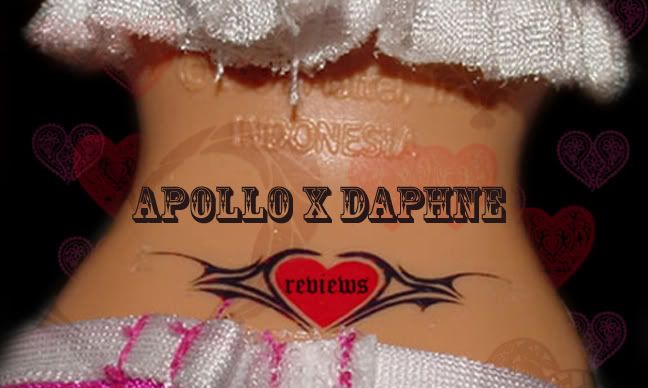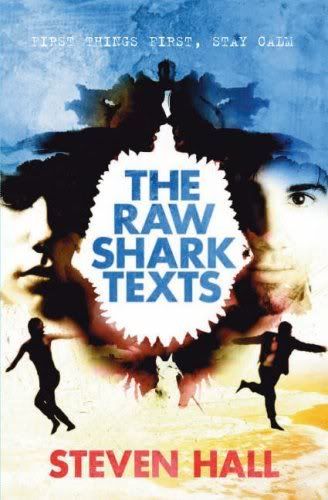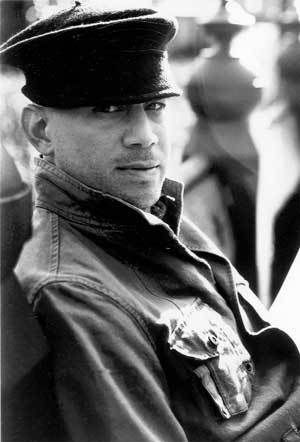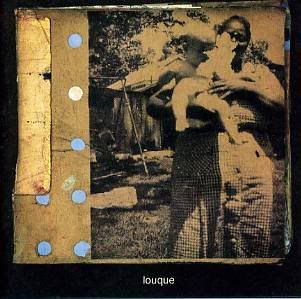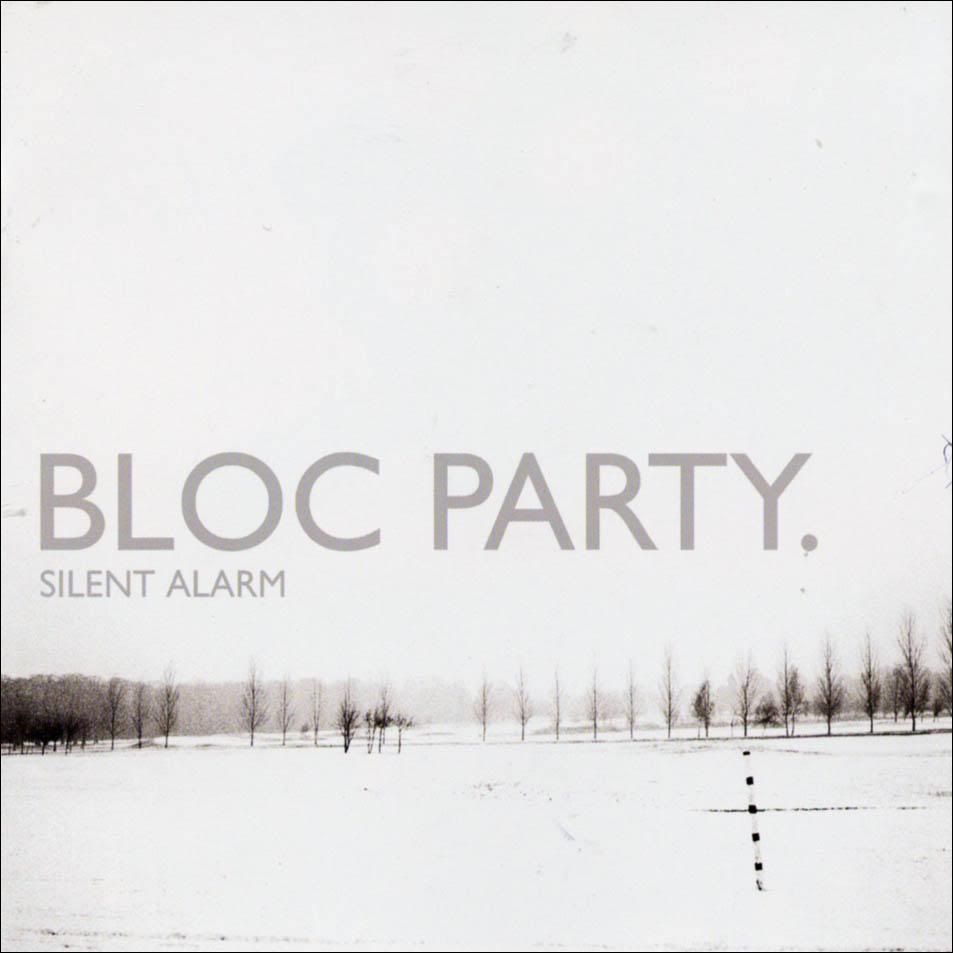
SILENT ALARM
We open with "Like Eating Glass" and a whining, high-pitched guitar. This is definitely an album highlight; it opens slowly but with this nagging little promise, and then builds up the sound until you're totally engaged. By the time Okereke's lyrics start ("It's so cold in this house/open mouth swallowing us/the children sent home from school/will not stop crying"), you know this song is going to be an introspective puzzle. While he's busy wailing away, Tong adds tight drums, and the pensive, sorrowful dual ode to and criticism of societal apathy is complete.
"Helicopter" is an even more pointed social and political commentary. The guitars are whiny and driving, and the tempo fast. ("he's born a liar/he'll die a liar/some things will never be different...just like his dad/the same mistakes"). Then we come to one of the most fascinating compositions of the album, "Positive Tension." The first half of the song is not as driven as the first two songs, and actually seems to be going nowhere as Okereke sings vulgar, angry lyrics. Eventually the song begins to build, and around the 2:30 mark it really kicks into high gear; there is a complete shift from a medium tempo to the characteristic fast, drums-and-guitar tight and layered frantic Bloc Party signature sound.
Possibly BP's most popular song, "Banquet" is a hypnotic composition that moves at a rapid, panicking pace and yet is still easily sung-along to. The content deals with emerging from childhood into adulthood, a theme which pervades the album as the members found themselves at the time filled with disillusionment with the world, and a growing struggle with apathy.
"The Bluest Light" is a rare slow song, but doesn't resonate as much as other slow songs on the album; for once, Okereke doesn't seem to be straining his voice, and the lyrics are softer and more romantic than the hard, tough lyrics of previous songs. This song still doesn't resonante with me, however--perhaps because I am still trying to figure out what "You are the bluest light" means.
"She's Hearing Voices" is a neat little break from the album's style, and adds a touch of variety. It manages to be upbeat without so much melancholy; in fact, it seems to be making light of a schizophrenic. In the bridge to the chorus, they experiment a little with the electronic effects which will pervade their later music so much, and the guitar differs from the straight post-punk high-pitched garage guitar as it is infused with electric effects at certain points. It certainly sticks out, and is a good segway into later albums.
Rarely is a love ballad so perfect as "This Modern Love." The tempo is perfect, moving at a medium pace which bars it from being boring, but not at so fast a pace that we can't keep up. The guitars in this song are more sweeping, as is the over-all sound; Okereke, again, has toned down the wounded yelping, as some are apt to call it. We open with incredibly imageric lines ("To be lost in the forest/To be cut adrift/You've been trying to reach me/You bought me a book")
The melody is simple but catchy, and it is truly the lyrics that shine. They dance between acusations ("Baby, you've got to be more discerning/I've never known what's good for me") and subtle declarations of love ("I'll pay for you anytime"). Eventually, the title comes into play, and we hear "This modern love/breaks me/This modern love/wastes me." Feel free to sigh in satisfaction-this is modern satisfaction.
The album lulls here. "Pioneers" is a perfectly respectable song, and one of the most ambitious and outspoken in terms of political statements on the album or in general modern music, but it's not nearly as exciting as "Helicopter" or as poignant as "This Modern Love." "Price of Gas" is catchier, and successfully alternates between basic verses and a catchy chorus; the echoing guitars and the yelping have returned, accompanied by backup voices that have been significantly twisted. The song itself is fairly political, with environmental overtones as well (yay!), which will appear in later albums.
"Luno" lets you know something intense is going to happen because it starts out with heavy, fast drums and bass. The lyrics are cryptic, and the frantic attitude that has categorized the album throughout is back at full force.
If there's any song on the album that echoes critic the assertions that BP is just shy at times of arena/anthem rock, it's "Plans." "Plans" is sweeping, has universal lyrics about the futility of planning one's future, and really solid composition. I'd love to see what would happen if Bloc Party ever decided to incorporate the piano into a song. Unfortunately, they've moved away from this style more and more in recent albums, and into the experimental electronic side of things- which I appreciate, but...oh, well.
"Compliments" finishes the album off. It literally took years for me to get into this ballad of apathy, and you have to be in a pensive or dark mood to really enjoy listening. "Compliments" is not for the faint of heart, and it's on the heavily electronic side of things. I actually think it was courageous of them include it on the album. It's a great song, just think first before sharing it with friends...they might ask if you need to take a Zoloft.
-elln
